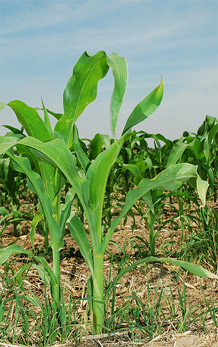York announces landmark research partnership with Brazil
The University of York is strengthening research ties with Brazil after signing a far-reaching scientific co-operation agreement with the São Paulo Research Foundation (FAPESP).
Under the new arrangement, FAPESP and the University of York will provide funds to promote joint research projects between researchers from York and higher education and research institutes in the State of São Paulo in Brazil.
This new agreement will strengthen York's profile in South America and allow us to build on existing links and collaborations
Professor Brian Cantor
This initiative strengthens York’s links in Brazil, which already include a partnership with the State University of Campinas – popularly known as Unicamp – and the University’s inclusion in the ambitious ‘Science without Borders’ scheme, which will see 100,000 Brazilian students studying in top universities worldwide over the next few years.
Founded in 1962, FAPESP is an independent public foundation with a mission to foster research and the scientific and technological development of the State of São Paulo. It is a research foundation that is considered a role model for funding innovative research and academic exchange, and has thousands of contracts for academic exchange, scholarships and research projects.
York’s Vice-Chancellor Professor Brian Cantor said: “The São Paulo Research Foundation is renowned for its role in investing in Brazilian science. We are extremely pleased to be working in partnership with FAPESP to create innovative, long-lasting research partnerships. This new agreement will also strengthen York’s profile in South America and allow us to build on existing links and collaborations.”
 One of the University’s largest research projects in Brazil
focuses on biorenewables. It comprises a
network of leading researchers in Europe and Brazil and is funded by the EU and
the Brazilian research funding council CNPQ. The project aims to identify biofuels from biomass. This huge project, known as SUNLIBB, is led
by Professor Simon McQueen-Mason from the Department of Biology at York.
One of the University’s largest research projects in Brazil
focuses on biorenewables. It comprises a
network of leading researchers in Europe and Brazil and is funded by the EU and
the Brazilian research funding council CNPQ. The project aims to identify biofuels from biomass. This huge project, known as SUNLIBB, is led
by Professor Simon McQueen-Mason from the Department of Biology at York.
A York delegation will visit Brazil in September to meet fellow researchers from the University of São Paulo, the State University of Campinas (Unicamp), the Federal University of Rio de Janeiro, and the Oswaldo Cruz Foundation, Rio de Janeiro. And there will be a workshop for São Paulo and York researchers funded by FAPESP.
York’s link with Unicamp comes through the Worldwide Universities Network (WUN), of which both are members. Unicamp is also a partner in the SUNLIBB biorenewables project. Unicamp is widely regarded as one of the leading research universities in South America and became WUN’s first South American partner in March.
The Science without Borders Scheme will enable Brazilian students to receive scholarships for one-year study abroad programmes, full PhDs, sandwich PhDs and exchange at postdoctoral research level at selected UK universities.
Further information
